The Arab “invasions” in the narratives of the vanquished: the fall of Constantinople and the beginning of the rule of the Muslim Arabs outside the peninsula…
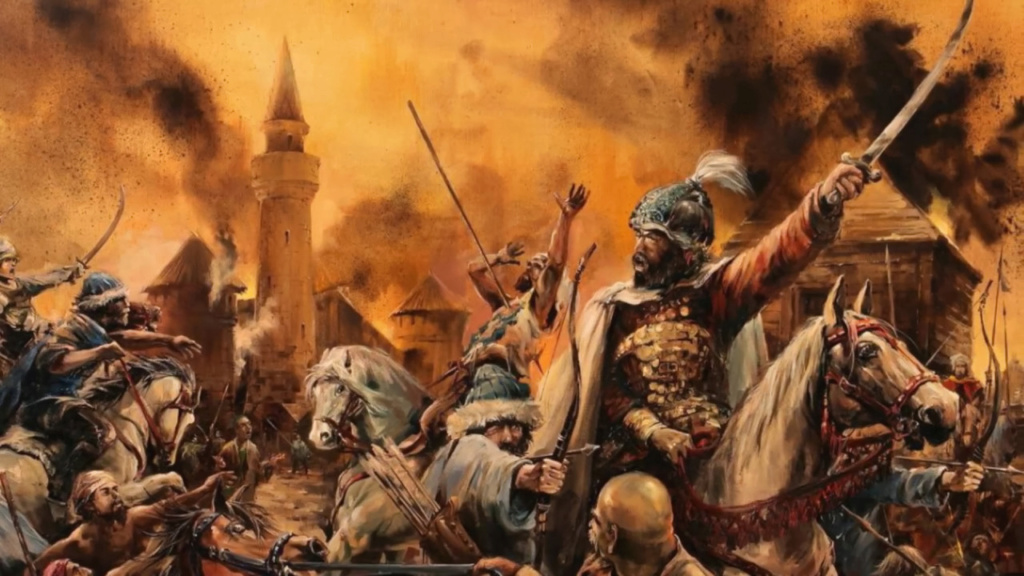
When the “Arab invasions” were launched in Transjordan, which was then under Byzantine rule, the Byzantines believed at first that these attacks were no more than Bedouin invasions from the ones they experienced!
Despite its dealings with the Arabs for hundreds of years, the Byzantine Empire seemed to be surprised by the “Arab invasions,” which came from whence it did not expect.
She did not realize, in the midst of her battle with the Persians, that there had been a change in the political organization in the peninsula... and that a state was in the embryonic stage, under the consolidation of its existence and its rule there.
When the “Arab invasions” were launched in Transjordan, which was then under Byzantine rule, the Byzantines believed at first that these attacks were no more than Bedouin invasions from the ones they experienced!

Various references from the sources of both sides trace the beginning of friction between the Muslim Arabs and the Byzantines to before the start of the “invasions”. It is said that Heraclius (Hercules) met the Prophet Muhammad or one of his envoys in Homs, and that the emperor permitted the Prophet to reside in the city (Yathrib), where the Byzantine influence at that time reached its northern outskirts ... and he may have paid him a great reward.
However, this “friendship” did not last long, because the Romans or their allies killed an envoy of the Prophet who was carrying a message to Heraclius after the latter refused to receive it, which prompted the Prophet to send his forces to Byzantine Syria.
Of the early encounters between the two sides, Byzantine references refer to the Battle of Muta.
While the Romans did not see in “Muta” more than an ordinary Bedouin invasion, the Muslims considered it a clear line of hostility after which there was no reconciliation with them. In this battle, the commander of the Islamic squadron, Zaid bin Haritha, and Jafar bin Abi Talib, who were of high importance in the order of the companions of the Prophet and his family, were killed.

The irony, says the Byzantine historian Theophanes, is that this early victory deepened the rift between the Byzantines and the Christianized Arabs who supported them.
The day after this victory, salaries were given to the Byzantine soldiers, while these Arabs did not get any luck from it, so they went off to their peers from other (Muslim) tribes... These soldiers from the Christianized Arabs are the ones who led the Muslims to the “rich” Gaza, which constitutes the gateway to the desert in the direction of Mount Sinai.
In fact, what encouraged these people to transfer their allegiance to their fellow tribesmen was the financial crisis that Byzantium suffered from after its war with the Persians ended, and then its supremacy over the Arabs, not to mention the existence of family ties and kinship between the Arabs loyal to the Romans and those participating in the “invasion” forces.
Condescension to the Arabs was not born of the moment, but there was a background that was established by the thinkers and historians of Byzantium. In addition to the rude method they developed to deal with the Arabs socially and politically. They put perceptions of their military capabilities... It turned out later that they were completely wrong.
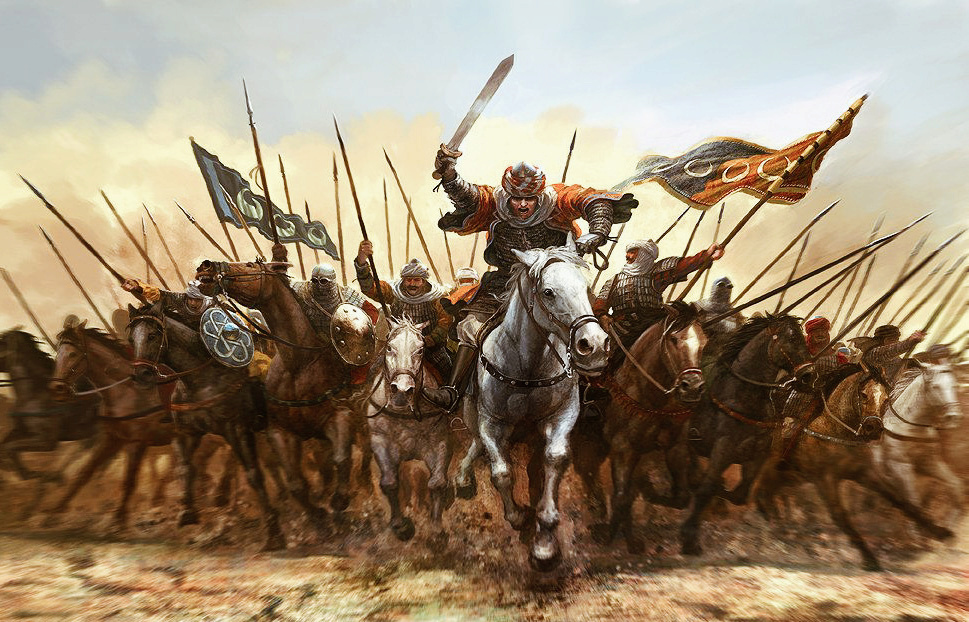
The historian Procopius, for example, claims that the Arabs cannot destroy the walls of cities, and the historian Scholasticus believes that the best way to fight the Arabs is to seek the help of other Arabs against them.
When Heraclius sent his spies to see what was going on in the peninsula after Muhammad's influence increased there, fears were reinforced, according to Islamic history, of a Byzantine attempt to advance towards the north of the peninsula after the Persians withdrew from Syria.
In the midst of this mistrust, the first armed clash took place between the Muslim Arabs and the Byzantines.
Thomas Al-Qassis says: “On Friday, the fourth of February in the year 634, at nine o’clock, a battle took place between the Romans and the Arabs of Muhammad (Taii Muhammad). The Romans fled, leaving behind the Bredden penguin, who was killed by the Arabs. About four thousand poor villagers of Christians, Jews and Samaritans were also killed. The Arabs destroyed the whole district.”
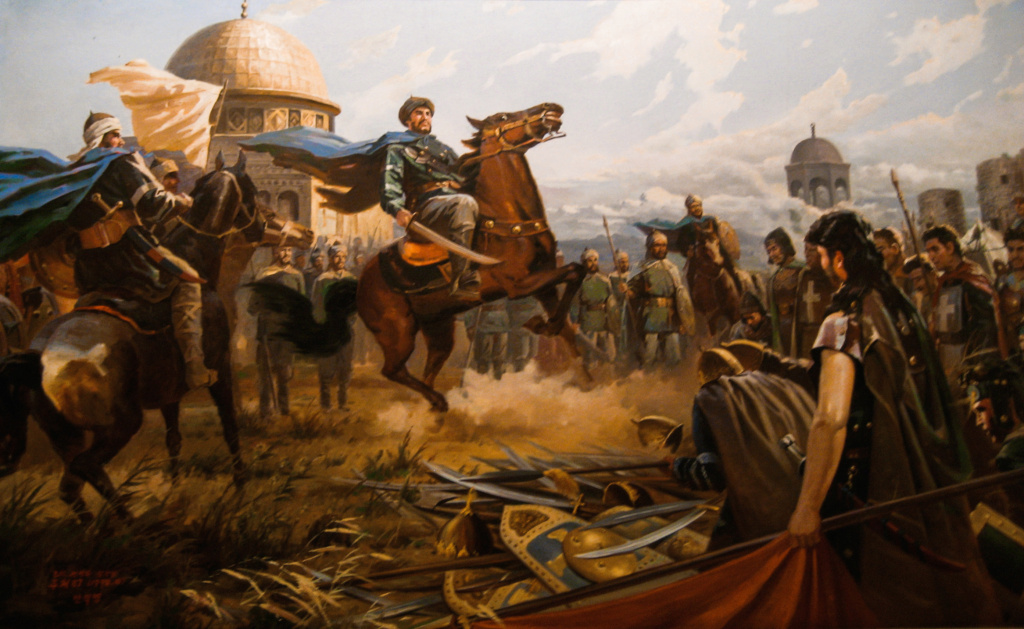
This Thomas the priest, a Syriac cleric, was close to what happened and apparently wrote it down during the time of the Umayyad caliph Yazid bin Abd al-Malik. However, the importance of this text is due more to the fact that it is the first reference to Muhammad in a non-Arabic source.
What really raises the question here was the extent of the seriousness with which the Sasanians and the Byzantines considered confronting the Arab advance... However, it is possible to invoke their exit from a devastating war, which did not make them develop a level of diplomatic exchange that would enable them to share information pertaining to a third party... Then who would have asked for the help of an old enemy!
... And at a moment when the Byzantines were preoccupied with internal conflicts, the decisive battle of Yarmouk took place, which decided the fate of Syria and paved the way for the invasion of Egypt ... That was in the year 636 AD.
In contrast to their war against the Sassanids, the American historian Walter Keighe believes that religion did not have a decisive role in mobilizing the feelings of the Byzantine soldiers and the inhabitants of the areas under their control during the Arab advance.
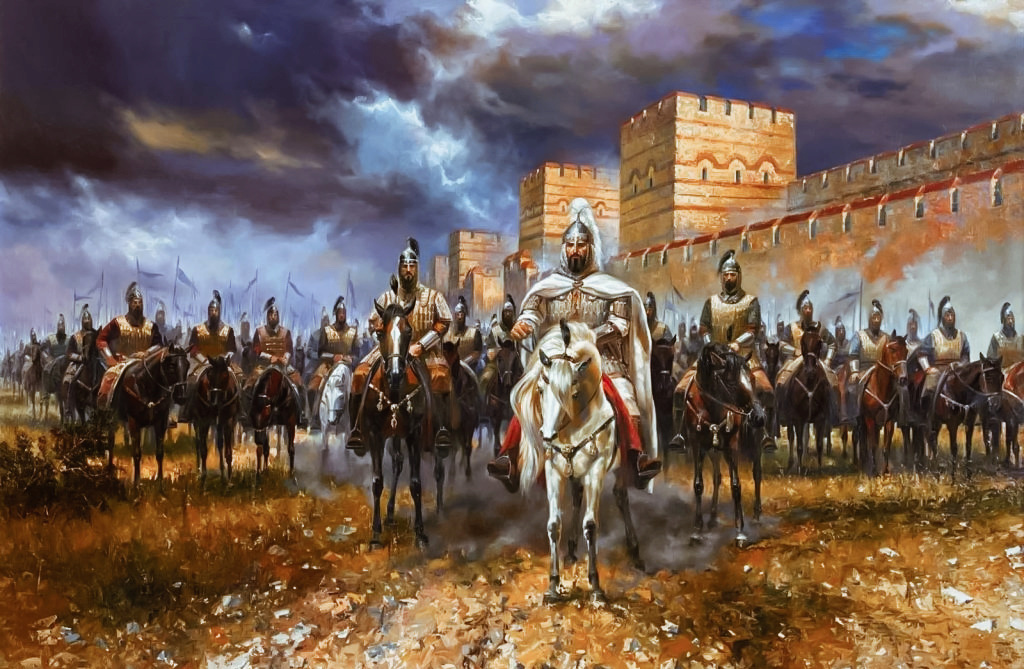
On the other hand, it is difficult to deny the fact that the Byzantines failed to use techniques they had previously used with the "barbarian" invaders, such as bribery and tactical deception on the battlefield to achieve victory.
This certainly indicates that religion played the role of the ideological glue, which united the Arabs under a central leadership and prevented their dispersion or their response to the temptations offered by the Romans.
The account of the Byzantine historian Theophanes of the Battle of Yarmouk differs from the Arab accounts. Without going into its details, what we are interested in here is recalling that Yarmouk and other confrontations of that period did not acquire great importance as turning points in the history of the region until relatively late.
This was precisely when its far-reaching effects appeared in consolidating Arab rule in Syria and ending the page of Byzantine control.
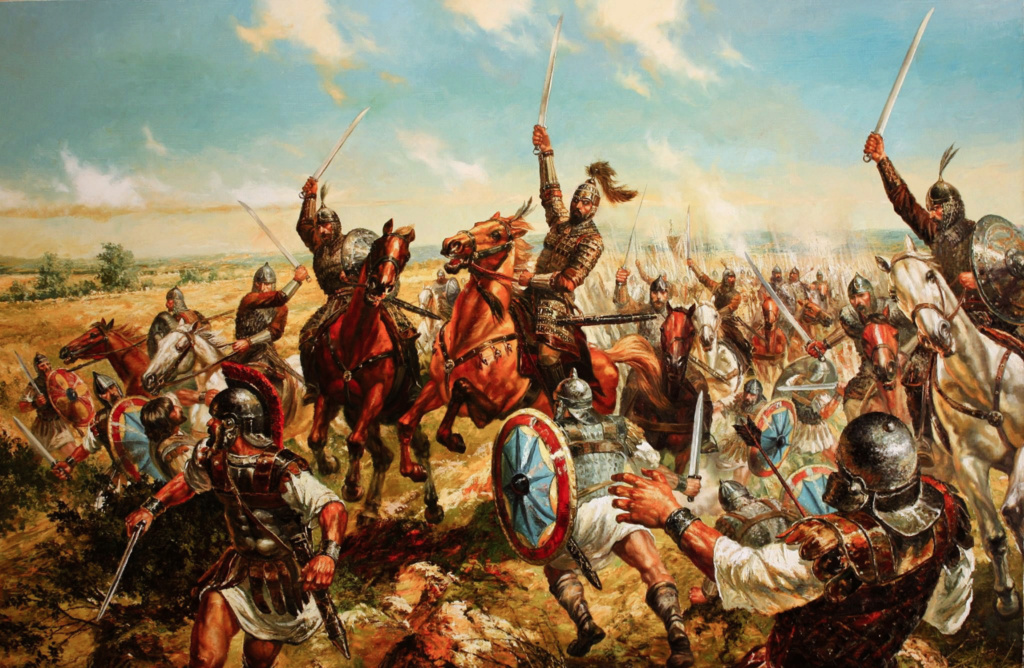
The defeat in Syria not only represented the end of the rule of Constantinople (the capital of the Byzantine Empire), but also the end of the dominance of Hellenistic culture, the decline of the political role of the Christians of the East, and in return the establishment of a civilized, cultural and political stage, different from its predecessor, even if it died to it with many connections and reasons.
Source: websites

